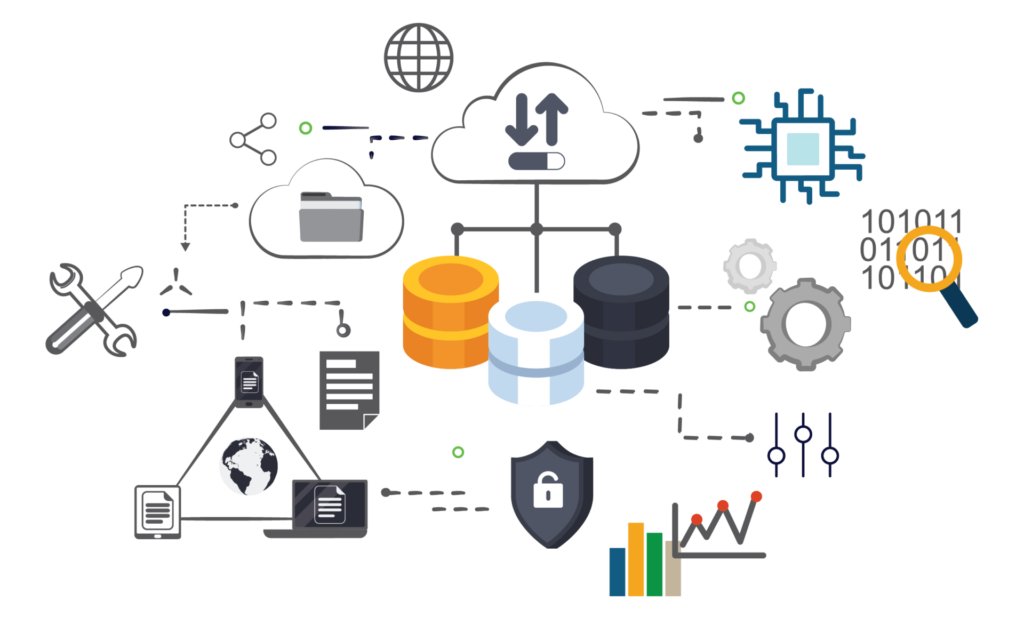In a rapidly evolving tech landscape, IT networking skills are essential for anyone looking to thrive in a technology-driven career. With digital transformation reshaping industries, companies increasingly rely on robust networks to ensure efficient operations and secure data flow. For tech professionals, mastering key networking skills can open doors to various roles, from network engineer to network administration positions. This article explores the essential networking skills that every tech professional should develop to stay competitive and excel in today’s job market.

1. Networking Basics
Understanding networking basics is fundamental for building a solid foundation in IT. Networking basics include knowledge of IP addresses, subnetting, routers, switches, and the OSI model. These are the building blocks of any network, and mastering them is essential for more advanced networking tasks.
How to Build This Skill: Enroll in network courses or networking tutorials that cover these foundational concepts. Courses like CompTIA Network+ provide a comprehensive overview of networking basics and are suitable for beginners. Cisco also offers foundational material in its Cisco training programs, making it easier to transition into advanced certifications.
2. Network Security
With cyber threats on the rise, network security has become a critical skill for tech professionals. This involves securing networks against unauthorized access, malware, and other potential threats. A strong grasp of network security principles ensures that you can protect your network’s integrity and safeguard sensitive data.
How to Build This Skill: Consider pursuing a network certification in security, such as CompTIA Security+ or Cisco’s CCNA Security. These certifications offer a structured learning path and cover essential topics such as firewalls, encryption, and intrusion detection. Building network security skills will not only enhance your technical knowledge but also make you a valuable asset in any organization.
3. Network Troubleshooting
Every tech professional working with networks must be skilled in network troubleshooting. Troubleshooting skills allow you to identify and resolve connectivity issues, optimize network performance, and ensure minimal downtime. This skill is particularly useful in roles like network administration, where maintaining network stability is crucial.
How to Build This Skill: Practicing hands-on troubleshooting in labs or simulations is highly effective. Networking training programs, such as Cisco’s CCNA courses, often include troubleshooting exercises that mimic real-world scenarios. Many online networking tutorials also focus on troubleshooting techniques, allowing you to practice and refine these skills.
4. Knowledge of Network Infrastructure
Understanding network infrastructure is essential for designing and managing effective networks. Network infrastructure involves the physical and logical elements of a network, including hardware like routers, switches, and firewalls, as well as software that manages data flow. Knowledge of network infrastructure enables professionals to create scalable, reliable networks.
How to Build This Skill: Taking network courses that focus on infrastructure components, such as Cisco’s CCNA Routing and Switching, can provide valuable insights. Cisco’s network certification tracks cover topics related to infrastructure management, enabling you to learn networking principles from one of the most trusted names in the field.
5. Wireless Networking
With more devices connecting wirelessly, wireless networking is a vital skill for tech professionals. Wireless networking involves configuring and securing wireless access points, managing bandwidth, and ensuring seamless connectivity across devices. This skill is especially important as remote work and mobile device usage continue to rise.
How to Build This Skill: Familiarize yourself with wireless standards, protocols, and security measures. Many networking tutorials and courses include modules on wireless networking, covering essentials like Wi-Fi standards, encryption, and interference management. The Cisco Certified Network Professional (CCNP) Wireless certification is a good option for those who want to specialize in this area.
6. IP Addressing and Subnetting
IP addressing and subnetting are core components of networking, allowing you to divide networks into segments and allocate IP addresses efficiently. Subnetting optimizes network performance by reducing broadcast traffic and isolating network segments.
How to Build This Skill: Start with networking basics to understand IP addressing and subnetting principles. Many network courses include subnetting exercises, and numerous online tutorials provide step-by-step guidance. Becoming proficient in subnetting is essential for roles that require configuring and managing large networks.
7. Virtualization and Cloud Networking
As more companies migrate to the cloud, understanding virtualization and cloud networking has become essential. Virtualization allows multiple operating systems to run on a single server, while cloud networking enables remote access to network resources. Familiarity with these concepts helps professionals manage networks in cloud-based environments.
How to Build This Skill: Explore courses that cover cloud platforms like AWS, Azure, or Google Cloud. Many IT networking certifications now include virtualization and cloud networking modules, making it easier for professionals to gain cloud-specific networking skills. Learning these skills can expand your career opportunities as more businesses adopt hybrid and cloud environments.
8. Scripting and Automation
Automation is transforming IT roles, and network automation is becoming increasingly important. By learning scripting languages like Python, tech professionals can automate routine network tasks, improving efficiency and reducing human error. Automation is valuable for scaling network operations, especially in large environments.
How to Build This Skill: Start by learning Python or another scripting language commonly used in networking. Cisco’s DevNet Associate certification focuses on network automation, teaching skills like managing network devices through APIs and automation frameworks. Practicing with automation tools in lab environments will help you build a solid foundation in this increasingly valuable skill.
9. Firewall and VPN Configuration
Firewalls and VPNs (Virtual Private Networks) are essential for securing networks and ensuring secure data transfer. Knowledge of configuring firewalls to filter traffic and setting up VPNs for secure remote access is critical in protecting network assets.
How to Build This Skill: Many networking training courses cover firewalls and VPNs as part of their curriculum. Cisco’s CCNA Security certification, for example, includes firewall configuration and VPN setup, helping you gain practical knowledge in these key areas.
10. Understanding of the OSI Model
The OSI (Open Systems Interconnection) model is a conceptual framework that outlines how data is transmitted across networks. Familiarity with the OSI model enables professionals to troubleshoot more effectively, as it provides a structured way to analyze data flow and identify issues.
How to Build This Skill: Study each layer of the OSI model, from physical to application layers. Networking tutorials and network courses often include the OSI model as part of the fundamentals. Understanding the OSI model is particularly useful in network troubleshooting, as it helps professionals pinpoint and resolve issues quickly.
11. Soft Skills for Networking
In addition to technical skills, soft skills like communication, problem-solving, and adaptability are essential in networking roles. Tech professionals often work with diverse teams, and the ability to communicate complex information clearly is crucial for effective collaboration.
How to Build This Skill: Practice explaining technical concepts in simple terms, and seek feedback from peers or mentors. Networking forums and communities can also provide opportunities to improve communication skills by discussing technical topics with other professionals.

Building a Strong IT Networking Skillset
As technology continues to advance, the demand for skilled network professionals will only grow. By developing these essential networking skills—ranging from networking basics and security to cloud networking and automation—you’ll be well-equipped to handle a variety of networking tasks. Whether you’re just beginning or aiming to advance your career, pursuing network certification or Cisco training can help solidify your knowledge and open doors to new opportunities.
Learning through network courses, practicing hands-on labs, and staying updated on industry trends will ensure you remain competitive and ready for the challenges of modern network management. In a rapidly changing IT landscape, mastering these skills can set you apart and position you for success in any tech role.



